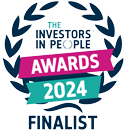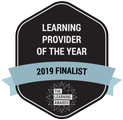
Children and Young People’s Mental Health:
Training for professionals working in Child & Adolescent Mental Health.
Many courses that we provide are applicable to working with children and adolescents and, when commissioned by a child and adolescent service, are tutored by one of our child and adolescent specialists. The following additional courses are solely for those working with children and adolescents, or frequently commissioned by services for children and adolescents. We bring the training to your own organization for a fixed all-inclusive fee, no matter where you are, and all of the courses are accredited by the Association for Psychological Therapies (APT) - a leading provider of training in mental health and related areas.

DBT-A: DBT for Adolescents.
A 3-day course.
Instruction in the key components of DBT for those who want to apply DBT to working with adolescents.
DBT brings together a series of skills and techniques which are powerful and well chosen ones, and DBT-A focuses it on working with adolescents. Whether you want to simply learn about DBT and how to apply it effectively, or are thinking of establishing a full DBT service, this course has it covered. The course covers the delivery of effective DBT at its most relevant for adolescents, including: confusion about self, impulsivity, lack of emotional control, interpersonal problems, family problems and dilemmas, high risk behaviors, including suicidal behavior and non-suicidal self-injury.

Developmental Trauma & Adverse Childhood Experiences (ACEs): Repairing the Damage™
A 3-day course.
For professionals working with young people who have been through experiences which are by any standards 'damaging'.
Adverse childhood experiences may result in changes in the deepest parts of the brain, resulting in effects which are behavioral, cognitive, biological, social and emotional. Examples include: aggressive behaviour, withdrawal, poor self esteem, hostility to others, lack of interest in activities, disturbed sleep and appetite, sadness, anxiety or anger problems, and poor relationships. Although this is a disturbing list there are many children who exhibit most or all of these as a complete 'package' of problems, resistant to repeated intervention and so the cause of great frustration to professionals. The aim of this course is to repair the damage and so avoid those consequences.

The Assessment and Risk Assessment of Children & Adolescents in Crisis™
A 3-day course. (2-day version also available.)
Using existing clinical skills and Davies's structured interview.
Assessing adolescents and children in crisis settings often causes professionals a lot of concern. They wonder whether they have the necessary skills, they are concerned about the potential volatility of the situation, they are unfamiliar with having another adult (the parent) present and concerned, they are not sure about consent and confidentiality issues, and they are not completely sure what their role is: assessment, risk-assessment, management, or what?

Attachment in Practice.™
A 3-day course. (2-day version also available.)
How to intervene effectively to help children with attachment disorder, and their parents or carers.
This course aims to teach you about Attachment Disorder, where it comes from, what effects it may have on children and young people, and how to work to reduce those effects and underlying attachment disorder. It therefore covers parenting designed to increase attachment, and working with foster carers, and also gives you the chance to conceptualize your own caseload in relation to these ideas.

The Effective Treatment of Anxiety in Children & Adolescents.
A 3-day course. (2-day version also available.)
Anxiety is the major mental health problem facing young people and it has serious short and long term consequences, so it is imperative we can respond to it effectively.
This is such an important topic for several reasons: first, its prevalence, anxiety is the single most common mental health problem in children and adolescents; second, the huge impairment it makes to the quality of life of the child and the child's family; third, the impairment to functioning in terms of concentration and exam performance; fourth, the long term consequences in terms of the schemas that are created by the child about him or herself and about those around them.

CBT Plus, with ADHD: intervention across the ages, from children to adults.
A 3-day course.
Powerful psychosocial interventions to help people with ADHD, and those around them.
ADHD has until recently been diagnosed mainly in children and young people, but it often persists into adulthood and even later life. Rarely if ever do adults acquire ADHD spontaneously, without having had it earlier, although many adults were too young for it to have been a diagnosis when they were children. For these reasons, this course takes a comprehensive view of ADHD, so you can help people no matter what their age. Its main focus is to detail effective psychosocial interventions that are available for those with ADHD and also those around them, whether young or old.

Trauma-Focused CBT, for all ages.
A 3-day course.
Post-Traumatic Stress Disorder is literally a life changing disorder. It is famously difficult to treat, yet Cognitive Behavioral Therapy can produce impressive results.
Experiencing a life-threatening event can leave the person with effects including: persistently re-experiencing the event (e.g. intrusive thoughts and images of it), a numbing of general responsiveness (e.g. less interest in significant activities and a feeling of detachment from others), persistent hyperarousal (e.g. difficulty sleeping, irritability, exaggerated startle response) adding up to significant distress or impaired functioning. This course examines effective Cognitive Behavioral Therapy based interventions (a) to ameliorate these effects and (b) to greatly improve the patient's quality of life where some effects cannot be mitigated.

The APT Diploma in Child & Adolescent Mental Health.
90 hours.
The APT Diploma in Child & Adolescent Mental Health provides you with 90 hours of training over 12 months. We bring all the modules to you for a fixed fee, to ensure you get a supportive group addressing the same material. The course covers all of the below courses.

Autism Awareness.
A half-day course.
This short course is designed to raise your knowledge and awareness of the importance of autism and inform you about some of the key questions. Specifically:
• Why is it important to know about autism?
• How many young people have autism?
• What effect does autism have on the person living with it?
• What effect does autism have on friends and family?
• What causes autism?
• What happens for the person living with autism as they grow older?
• What are the most helpful responses we can make?
• What other help is available for those living with autism, and their families?



